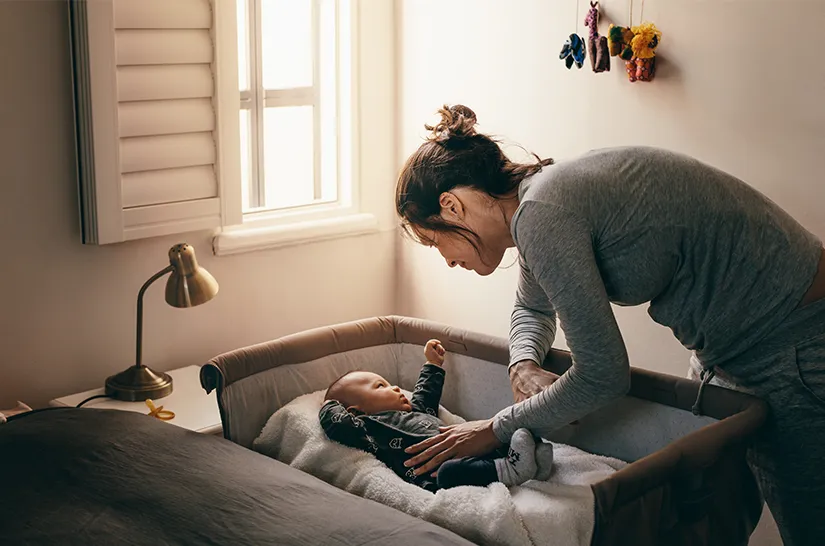Is mould dangerous for babies? Never ignore household mould!
Mould in the home is generally a health hazard for residents. Especially when exposed to household mould for an extended period, significant health problems can arise, ranging from allergies to serious respiratory diseases or weakened immune systems. Even otherwise healthy individuals can suffer health issues from prolonged mould exposure. Therefore, special caution is necessary for those who are already immunocompromised, sick, or elderly. However, even our little ones suffer from mould spores in the air and can develop long-lasting, even chronic, illnesses if exposed to mould spores. Statistics and studies suggest that babies and toddlers exposed to household mould in their daily lives have an increased risk of developing asthma.
How does mould affect babies?
The immune system of our offspring is not yet adequately developed in infancy and early childhood, making our little ones particularly susceptible to various illnesses. Moreover, it is not uncommon for health problems that children experience at a young age to persist throughout their lives or only show marginal improvement. For this reason, babies and young children deserve special protection and should not be exposed to mould contamination under any circumstances.
What are the consequences of mould for babies, and how can I recognize them?
Typically, health problems in babies caused by mould manifest as runny noses, coughs, bronchitis, or red eyes. Skin reactions are also common. However, symptoms can vary and even lead to gastrointestinal issues and abdominal pain. Unfortunately, the connection between these symptoms and potential mould contamination in living spaces is often recognized too late or, in the worst case, not at all. Therefore, it is crucial to keep an eye on the environment of our little ones and to act quickly if there is suspicion of mould. If symptoms occur, a visit to the pediatrician should not be postponed.
Mould Testing Provides Certainty: Get Your Home Tested for Mould for Safety
If, for example, mould stains or the typical musty smell of mould become noticeable, babies and young children should avoid the affected rooms until it is determined whether there is indeed mould on the walls or furniture. If there is suspicion, it is also advisable to check behind bulky furniture, as mould fungus is often hidden in these areas.
In case of suspicion of mould in the home, safety is paramount: Mould testing at home is easy to perform and provides certainty. This can involve testing the indoor air for mould spores to confirm or rule out their presence. If potential mould stains appear on walls or furniture, it is recommended to have mould samples analyzed. An accredited laboratory for mould analysis will examine the mould samples you submit and determine the type of mould. This allows for more targeted measures to remove household mould.
The Importance of Air Quality for Babies
Maintaining healthy indoor air quality is crucial for babies and toddlers, as their respiratory systems are still delicate and developing. Poor air quality caused by mould or other pollutants can lead to a variety of health issues. Therefore, it is advisable to regularly check indoor air quality to ensure it is free from contaminants.
Precautions for a Mould-Free Home
The best way to protect babies and young children from the dangers of mould is through mould prevention. Keep your home dry and well-ventilated, as mould thrives in the presence of moisture. Routinely inspect your home for signs of dampness and mould, especially in bathrooms, kitchens, and basements. Ensure that any leaks are promptly repaired, and consider using dehumidifiers to control humidity levels.
Conclusion: The Dangers of Mould for Babies
The dangers of mould for babies are real and can have significant impacts on the health of our little ones. Babies and toddlers have underdeveloped immune systems, making them more susceptible to mould spores. As such, parents should be particularly vigilant about the air quality in their living spaces, ensuring they are free from mould and other pollutants. Regular inspections, good ventilation, and conducting mould tests can help protect the well-being and health of our little ones. Acting promptly when there is suspicion of mould is crucial to prevent potential health issues.
IVARIO offers a variety of mould testing kits for easy at home testing with fast and reliable results!

